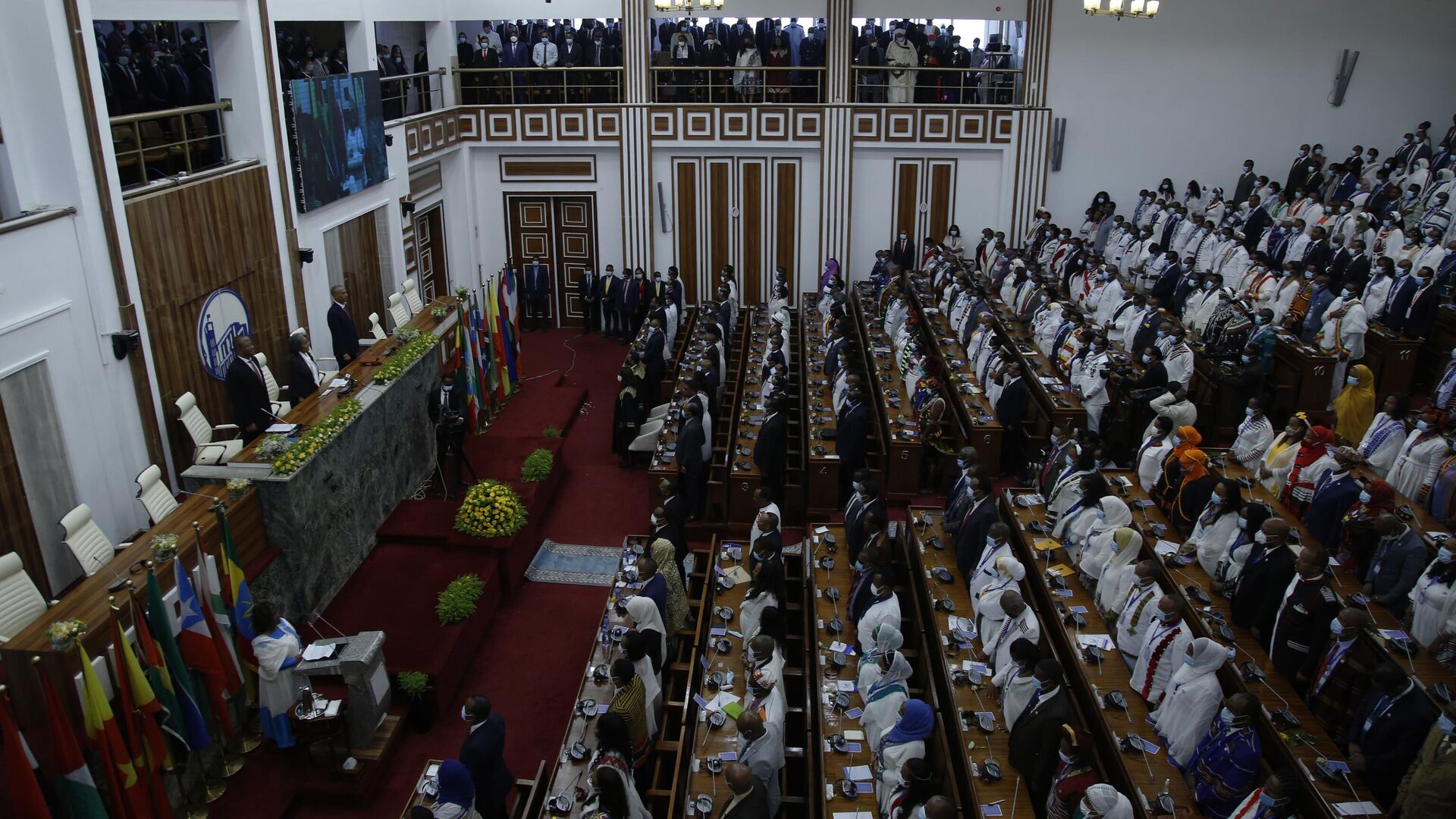https://en.sputniknews.africa/20241217/law-to-open-ethiopias-banking-sector-to-foreign-competition-passed-by-parliament-1069760217.html
Law to Open Ethiopia's Banking Sector to Foreign Competition Passed by Parliament
Law to Open Ethiopia's Banking Sector to Foreign Competition Passed by Parliament
Sputnik Africa
With a population of more than 120 million and one of the largest economies on the African continent, Ethiopia represents a substantial market that has long... 17.12.2024, Sputnik Africa
2024-12-17T17:13+0100
2024-12-17T17:13+0100
2024-12-17T17:13+0100
sub-saharan africa
abiy ahmed
ethiopia
international monetary fund (imf)
east africa
bank
central bank
banking
investment
foreign direct investment (fdi)
https://cdn1.img.sputniknews.africa/img/07e8/0c/11/1069760049_0:320:3072:2048_1920x0_80_0_0_4f43f0567b60b780d59ab1f64ec709de.jpg
Ethiopia's parliament has passed legislation on Tuesday opening the East African country's banking sector to foreign competition, a key step in the government's broader effort to attract foreign investment.The move allows foreign banks to establish subsidiaries, branches, or representative offices, and acquire up to 40% ownership in local banks. This marks a significant liberalization of Ethiopia's previously tightly controlled economy, a process underway since Prime Minister Abiy Ahmed took office in 2018.While the parliament overwhelmingly approved the law, some opposition members voiced concerns about the potential impact on domestic banks. However, the governor of the central bank, Mamo Mihretu, argued that increased competition will ultimately strengthen Ethiopian lenders.This reform follows Ethiopia's recent securing of an International Monetary Fund (IMF) support program and the subsequent floating of its birr currency – key components of the IMF's recommendations. Other reforms included the adoption of an interest rate-based monetary policy.
https://en.sputniknews.africa/20241103/ethiopian-prime-minister-accuses-foreign-embassies-of-black-market-activities-threatens-action-1069016182.html
ethiopia
east africa
Sputnik Africa
feedback@sputniknews.com
+74956456601
MIA „Rossiya Segodnya“
2024
Muhammad Nooh Osman
https://cdn1.img.sputniknews.africa/img/07e7/04/0a/1058467512_0:0:1280:1280_100x100_80_0_0_ec723833bcbfcaed2e21952965ad99e4.jpg
Muhammad Nooh Osman
https://cdn1.img.sputniknews.africa/img/07e7/04/0a/1058467512_0:0:1280:1280_100x100_80_0_0_ec723833bcbfcaed2e21952965ad99e4.jpg
News
en_EN
Sputnik Africa
feedback@sputniknews.com
+74956456601
MIA „Rossiya Segodnya“
Sputnik Africa
feedback@sputniknews.com
+74956456601
MIA „Rossiya Segodnya“
Muhammad Nooh Osman
https://cdn1.img.sputniknews.africa/img/07e7/04/0a/1058467512_0:0:1280:1280_100x100_80_0_0_ec723833bcbfcaed2e21952965ad99e4.jpg
abiy ahmed, ethiopia, international monetary fund (imf), east africa, bank, central bank, banking, investment, foreign direct investment (fdi)
abiy ahmed, ethiopia, international monetary fund (imf), east africa, bank, central bank, banking, investment, foreign direct investment (fdi)
Law to Open Ethiopia's Banking Sector to Foreign Competition Passed by Parliament
Muhammad Nooh Osman
Writer/Editor
With a population of more than 120 million and one of the largest economies on the African continent, Ethiopia represents a substantial market that has long been attractive to foreign investors. Since taking office in 2018, Prime Minister Abiy Ahmed has set a goal of reforming the country's tightly controlled economy to stimulate further growth.
Ethiopia's parliament has passed legislation on Tuesday opening the East African country's banking sector to foreign competition, a key step in the government's broader
effort to attract foreign investment.
The move allows foreign banks to establish subsidiaries, branches, or representative offices, and acquire up to 40% ownership in local banks. This marks a significant liberalization of Ethiopia's previously tightly
controlled economy, a process underway since Prime Minister Abiy Ahmed took office in 2018.
While the parliament overwhelmingly approved the law, some opposition members voiced concerns about the potential impact on domestic banks. However, the governor of the central bank, Mamo Mihretu, argued that increased competition will
ultimately strengthen Ethiopian lenders.
This reform follows Ethiopia's recent securing of an International Monetary Fund (IMF) support program and the subsequent floating of its birr currency – key components of the IMF's recommendations. Other reforms included the adoption of an interest rate-based monetary policy.



